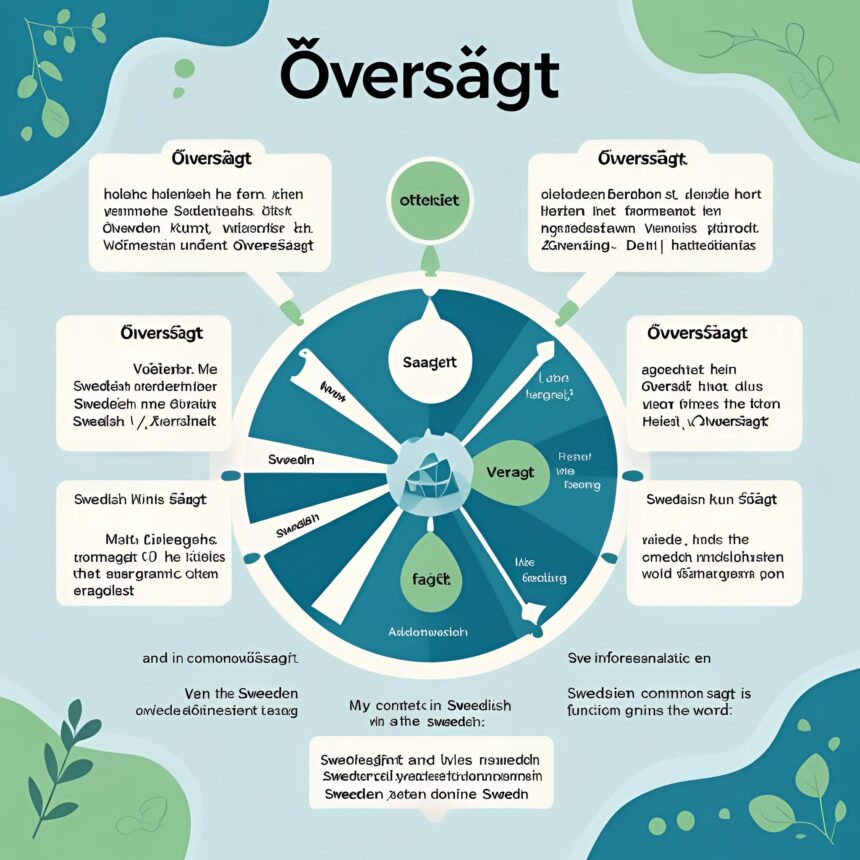Language is a reflection of culture, and understanding specific words or expressions can unlock deeper insights into how people communicate. One such word in Swedish is “översägt.” While not as commonly encountered as everyday vocabulary, “översägt” carries a nuanced meaning worth exploring, especially for learners and enthusiasts of the Swedish language.
What Does “Översägt” Mean?
The word “översägt” is derived from the verb “säga” which means “to say” in Swedish. The prefix “över-” generally means “over” or “excessively.” Combined, “översägt” roughly translates to “overstated”, “exaggerated,” or “said in excess.”
In English, you might use “översägt” in contexts where someone overexplains, overstates, or dramatizes a point beyond what is necessary or accurate.
Grammatical Context
“Översägt” is the past participle form of the verb “översäga,” although it is rarely used in everyday modern speech. It can function as an adjective in some contexts, describing something that has been overstated.
Example:
-
Det var kanske lite översägt att kalla det en katastrof.
(It was perhaps a bit of an exaggeration to call it a catastrophe.)
Usage in Everyday Swedish
While not part of daily conversational Swedish, “översägt” may appear in:
-
Literature or essays where formal or reflective language is used.
-
Media critiques where someone is analyzing an overstated claim.
-
Debates or academic discussions when pointing out exaggeration.
It’s more likely to appear in written Swedish than in casual spoken language.
Common Synonyms
Here are a few Swedish synonyms or near-synonyms that may be used in place of “översägt”:
| Swedish Term | English Translation |
|---|---|
| Överdriven | Exaggerated |
| Förstorad | Magnified/Blown out of proportion |
| Bombastisk | Bombastic/Overblown |
| Tillspetsad | Sharpened/Exaggerated (usually for effect) |
When to Use (and Not Use) “Översägt”
Use “översägt” when:
-
You’re writing in a formal or analytical tone.
-
You want to point out that something was exaggerated in wording.
-
You’re interpreting or analyzing a statement or description.
Avoid using it when:
-
You’re speaking informally (use “överdriven” instead).
-
You’re unsure of your audience’s Swedish proficiency — it’s a less common term.
Final Thoughts
“Översägt” is a subtle but useful word for those who want to expand their understanding of nuanced Swedish vocabulary. Though not commonly used in daily speech, it serves an important role in formal writing, analysis, and critical commentary. Whether you’re a Swedish language learner, a translator, or simply curious about linguistic intricacies, mastering terms like “översägt” can enrich your ability to interpret and express ideas with precision.







